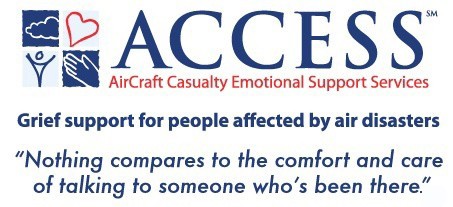 After 25 adventurous years as a commercial pilot, beginning in the out back of my native Australia and continuing in the wilderness of Alaska, my career was cut short following a dramatic in-flight medical emergency. In 1987 while flying a Piper T-1040 turbo prop on a charter flight over the Bering Sea I experienced a sudden loss of consciousness for about 15 minutes. There was no other pilot on board and the two passengers knew nothing about flying. We survived, I believe, only through divine intervention. The high point of my career was the many years that I spent flying in the Aleutian Islands while working for Pen Air, a regional airline in Alaska. I felt like I had arrived, life could not get any better, then in one day I went from being a senior pilot to being not only unemployed, but seemingly unemployable and unwanted.
After 25 adventurous years as a commercial pilot, beginning in the out back of my native Australia and continuing in the wilderness of Alaska, my career was cut short following a dramatic in-flight medical emergency. In 1987 while flying a Piper T-1040 turbo prop on a charter flight over the Bering Sea I experienced a sudden loss of consciousness for about 15 minutes. There was no other pilot on board and the two passengers knew nothing about flying. We survived, I believe, only through divine intervention. The high point of my career was the many years that I spent flying in the Aleutian Islands while working for Pen Air, a regional airline in Alaska. I felt like I had arrived, life could not get any better, then in one day I went from being a senior pilot to being not only unemployed, but seemingly unemployable and unwanted.
After this traumatic experience and a career gone forever that had been so rewarding, my world was devastated. Knowing that I would never fly a commercial aircraft again was something that I could not accept. The emotional pain is still severe even after 12 years. As I struggled to ï¬nd some direction in life and establish a new career, my world sank to a very low point. Not knowing that I needed treatment from a counselor, I tried to deal with the feelings of loss and confusion myself hoping that they would just go away”they didn’t. I am frustrated that no one in the medical profession explained the situation to me. After the near death experience in the aircraft, followed by the total loss of a career, then struggling to rebuild my life, it should have been obvious to the doctors who treated me that without help I would be facing a difficult future.
Recently, on my own initiative, I sought help from a wonderful counselor who diagnosed me with severe depression the result of untreated post-traumatic stress, and now is showing me that while the scars are permanent the wounds can be healed in time. While I still cannot understand why it all happened, I am just now beginning to ï¬nd healing for that chapter of my life. Some of the reasons my loss became so severe were the long delay in getting help and the fact that I kept my emotional turmoil a secret feeling that no one would understand my condition. I became very proficient at living in denial of what had happened, attempting to block it out of my mind, even trying to pretend that I had never been an airline pilot. I felt guilty and angry for allowing myself to be in this condition and that perhaps I was just a weak person, overreacting to some small thing.
I am thankful to have discovered ACCESS. To be able to speak with other survivors and share experiences is very therapeutic. My heart goes out to each person who has suffered a traumatic loss in their life. My appreciation goes to Heidi Snow and the other dedicated people who operate this organization in such a professional way. I would welcome hearing from anyone who may wish to share his or her experience. Thank you so much.
Harold Wilson, a pilot who survived a Piper T-1040 turbo prop charter flight, which crashed over the Bering Sea on August 13, 1987



